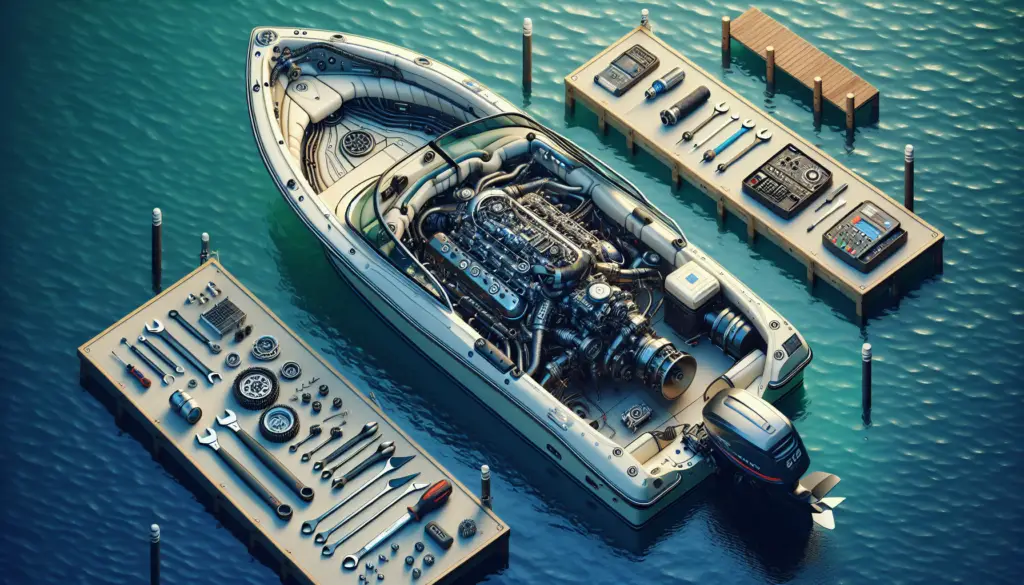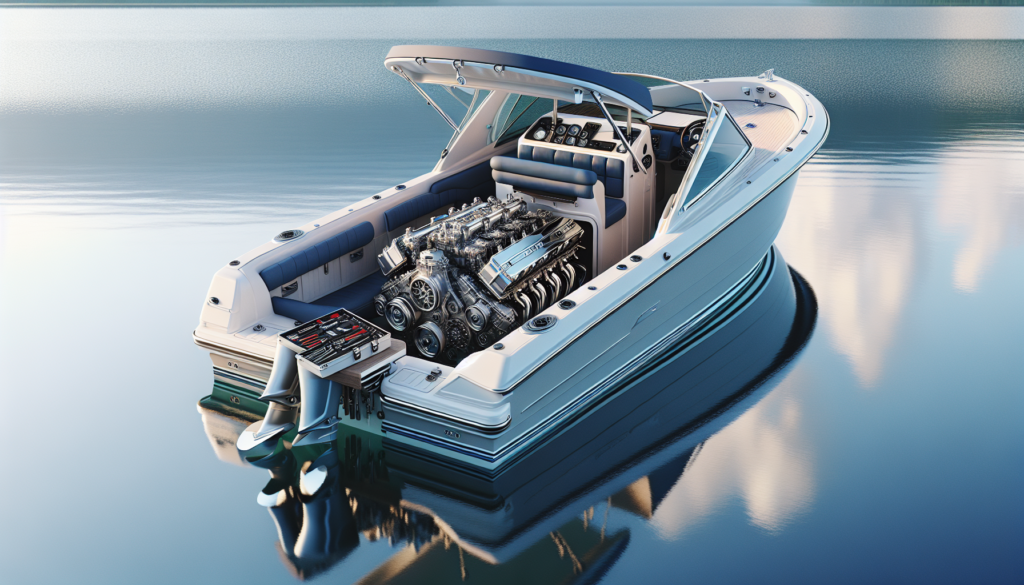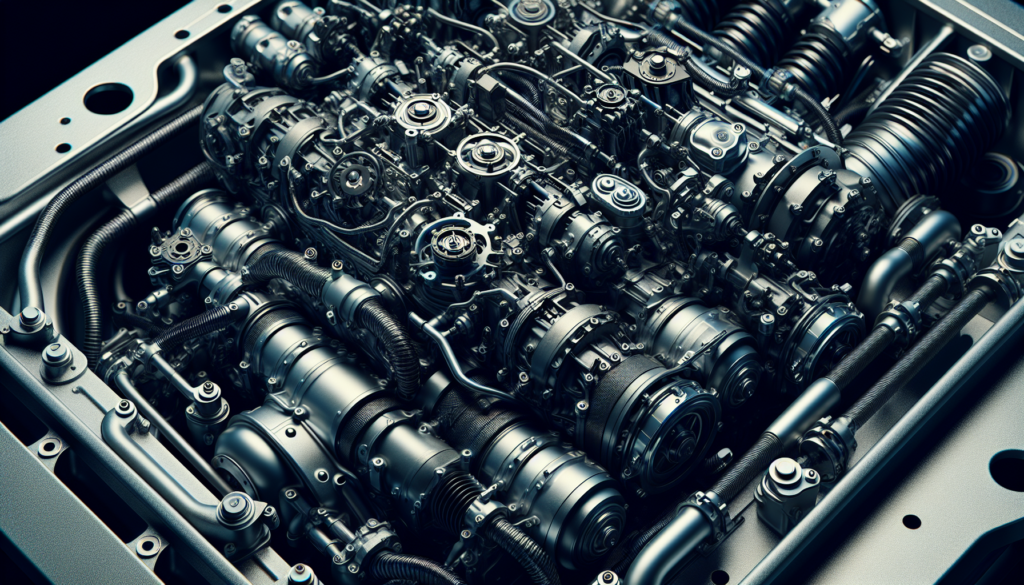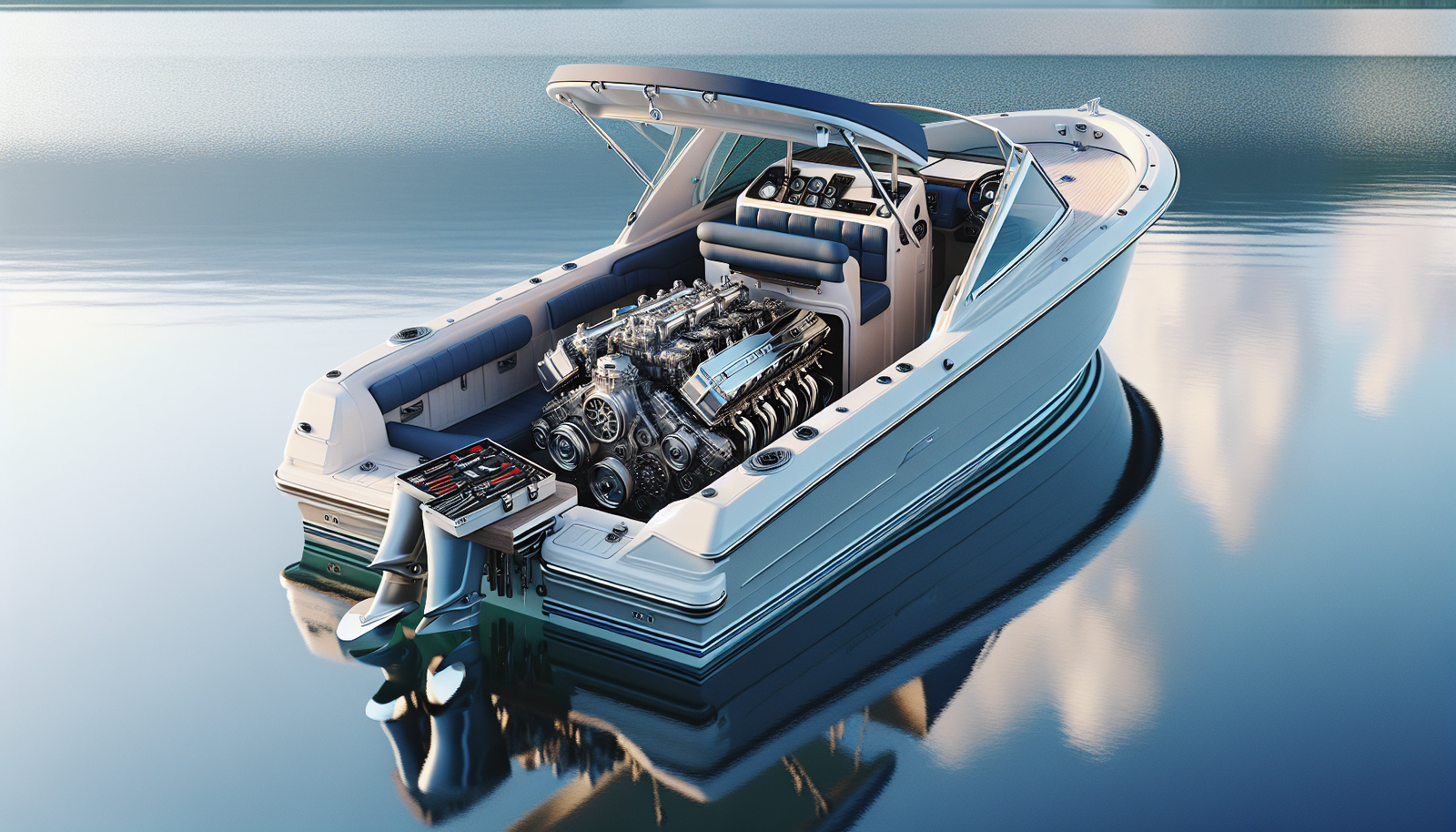Have you ever found yourself in the middle of a vast water body and your boat’s engine suddenly stops? Well, the knowledge of diagnosing engine problems in your boat can be quite handy! The article “How To Diagnose Engine Problems In Your Boat” arms you with necessary skills to identify and possibly fix the common issues that may affect your boat’s engine. This helpful guide can save you time, money and prevent potential hazardous situations. So, get ready to understand your boat’s engine better than ever before!

Understanding the Basics of Boat Engine
As a boat owner, you should have a basic understanding of your boat’s engine to better diagnose and troubleshoot issues that may emerge over time. This initial understanding not only helps you to recognize problems faster but also to conduct fundamental maintenance practices that keep your marine engine running smoothly.
Components of Boat Engine
A boat engine consists of various components that interact in unison to make the boat in motion. The engine block, cylinder heads, pistons, a crankshaft, cooling and fuel systems are the backbone of any marine engine. Other components include the spark plugs and alternator. Understanding these components will provide you with a solid foundation for comprehending how your boat’s engine functions.
How Boat Engine Works
The operation of a boat engine is similar to that of a car’s engine. It’s a combustion process where fuel is mixed with air, compressed, and ignited. The resulting explosion pushes the pistons, which cause the crankshaft to rotate, propelling the boat forward. The cooling system helps to dissipate heat generated by the motor while the fuel system delivers fuel to be burned in the combustion process.
Signs of a Healthy Boat Engine
A healthy boat engine runs smoothly, starts quickly, and maintains a consistent power output. It does not overheat or emit abnormal amounts of exhaust smoke. Also, there should not be any knocking sounds or vibrations coming from the engine block.
Common Boat Engine Problems
The inevitable wear and tear that comes with using your boat can contribute to common engine problems. Being able to recognize these issues early on will help you address them promptly and avoid major, costly repairs down the line.
Overheating
Overheating is a common issue. If the engine temperature gauge indicates that your motor is running hotter than usual, this could be due to a problem with the cooling system.
Engine Won’t Start
This problem could be due to the battery, fuel supply, starter motor, or electrical system. If the engine turns over but doesn’t start, fuel supply or spark plugs might be the cause.
Loss of Power
A significant decrease in your boat’s speed or rpm can suggest a problem. It could be due to issues with the fuel supply, air intake, or exhaust system.
Excessive Smoke
Variations in the color of the smoke emitted from the exhaust system can suggest different problems. Blue smoke indicates oil burning, white smoke can be due to unburned fuel or coolant, and black smoke suggests that the fuel is not burning efficiently.
Engine Knocking Sounds
These sounds are often due to improper combustion within the cylinders. This could be caused by substandard fuel, cylinder carbon deposits, or problems with the spark plugs.

Diagnosing Overheating Problems
Addressing overheating promptly is essential as prolonged exposure to intense heat can cause critical engine damages.
Identifying Overheating Symptoms
Apart from the high-temperature reading on your gauge, common symptoms of an overheating engine include a hissing sound, reduced engine performance, and excessive coolant leaks.
Check the Cooling System
The cooling system should be your first port of call when diagnosing overheating issues. Look out for leaks, check the coolant level, and inspect the water pump for any faults.
Inspection of the Impeller
Your boat’s impeller plays a critical role in the cooling system. Impellers deteriorate over time and may need to be replaced if worn out or damaged, so examining them should be part of your process.
Verifying the Thermostat
The thermostat controls the amount of coolant flowing through your engine. A faulty thermostat could lead to overheating issues.
Troubleshooting Starting Difficulties
Quickly diagnosing why your boat engine won’t start can get you back on the water faster.
Inspecting the Battery
A weak battery is a common reason for starting issues. Ensure the battery is correctly installed, the terminals are clean, and the battery is fully charged.
Checking the Spark Plug
Faulty spark plugs can prevent your engine from starting. Check the spark plug for any signs of wear and tear and replace them if necessary.
Verification of Fuel System
A blocked fuel filter or stale fuel can prevent the engine from starting. Regularly replace the fuel filter and always use fresh fuel.
Testing the Ignition System
If the engine’s ignition switch, fuses, or wires are faulty, the engine may not start. Checking the system and replacing any defective parts is crucial.

Investigating Loss of Power
Addressing a loss of power promptly can help keep your engine running optimally.
Assessing Fuel Supply
Dirty fuel, blocked fuel lines, or a problematic fuel pump can lead to loss of power. Assess the fuel supply and make necessary replacements or cleanup.
Inspecting the Air Intake
Assess the air intake system for any blockages that could be limiting the amount of air mixed with the fuel.
Examination of the Exhaust System
A blocked exhaust can cause a loss of power by preventing exhaust gases from exiting the engine properly.
Checking Propeller Condition
A damaged or improperly installed propeller can also lead to power loss. Check for any visible damage and ensure it is installed correctly.
Examining Smoke Issues
Excessive or improperly colored smoke can indicate a problem with your boat engine.
Identifying Different Smoke Colors
Blue smoke indicates oil burning, white smoke can be due to unburned fuel or coolant, and black smoke suggests the fuel is not burning efficiently.
Understanding Causes for Different Smoke Colors
Blue smoke is usually caused by oil leaking into the combustion chamber, white smoke can be due to a faulty gasket or a cracked engine block, and black smoke is often due to improper combustion or a clogged air filter.
Addressing the Underlying Problem
Addressing these concerns includes changing gaskets, fixing leaks, adjusting timing, and replacing air filters.

Addressing Engine Knocking Sounds
Knocking sounds usually indicate a problem with the combustion process.
Understanding the Causes of Engine Knocking
Knocks are often due to poor fuel quality, spark plug issues, or excessive carbon buildup in the cylinders.
Checking for Fuel Issues
Ensure the fuel is fresh and appropriate for your engine type to avoid knocking.
Verifying Mechanical Problems
Mechanical problems like a faulty spark plug or excessive carbon deposits also result in knocking sounds. Replace faulty spark plugs and use a fuel additive to clear carbon deposits.
Performing Regular Maintenance
Regular maintenance can prolong the lifespan and performance of your engine.
Benefits of Regular Maintenance
Regular maintenance keeps your engine running smoothly, increases its lifespan, and reduces the need for major costly repairs.
What Regular Maintenance Should Include
Maintenance should include changing engine oil and filters, inspecting spark plugs, flushing the cooling system, and checking the fuel and air intake systems.
How to Perform Regular Maintenance
Follow your engine manufacturer’s recommended maintenance schedule to ensure your engine receives proper care and attention.
When to Seek Professional Help
Sometimes, problems may escape your DIY skills and you’ll need to consult with a professional.
Recognizing the Limits of DIY Repairs
While basic maintenance and problem-solving can be carried out by yourself, larger issues, or persistent problems, might be best left to a professional.
Finding a Trustworthy Mechanic
Seek recommendations from other boat owners and do some research to find a trustworthy and qualified boat mechanic.
What to Expect During a Professional Inspection
During a professional inspection, the mechanic will thoroughly inspect your boat engine, identify any issues, and recommend necessary repairs or replacements.
Prevention of Future Engine Problems
Preventing future problems can save you time, money, and stress.
Importance of Regular Checks
Regular inspections can help you catch and address minor problems before they become major ones.
Keeping the Engine Clean
Keeping your engine clean and free from debris can prevent damage and help it run smoother and more efficiently.
Correct Storage and Seasonal Maintenance
Seasonal maintenance and proper storage can help to prevent many problems. When not in use, store your boat in a dry place, cover the engine, and disconnect the battery. Before you start using your boat again, make sure to carry out comprehensive seasonal maintenance.

